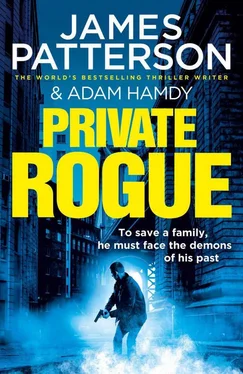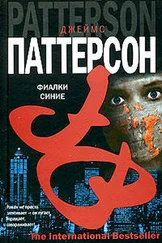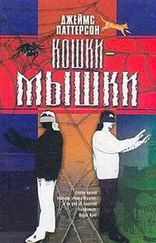“You don’t have to worry,” Sci said. “Jack knows how to take care of himself.”
“I’m not worried,” Justine replied, but that was less than the truth.
She wasn’t just worried about whether or not Jack would come home. Each of these major investigations took an emotional toll on him, and while it might remain hidden from others who only saw the confidence and bravado of a hero, she saw beneath the façade. The Moscow investigation had been particularly grueling, and even Jack acknowledged how much it had affected him. It wasn’t often that Jack Morgan benched himself. Justine knew Afghanistan already held traumatic memories for him. She prayed that he would not pay too high a psychological price for whatever was to come.
“If you say so,” Sci responded. “Although I’m a little offended that after all these years working together, you don’t think I’m smart enough to read you like a book.”
Justine elbowed him again.
“Cut it out,” he said. “Try to be professional. We’re almost there.”
Mo-bot had traced the cell phone Justine had called to contact Donald Singer to an apartment building on West 81st Street, one block from Central Park. Justine and Sci had volunteered to see if they could pin the phone to a specific apartment. It hadn’t moved since it had been taken into the building.
38 West 81st Street was a grand old building with a green awning that traversed the sidewalk. It was the kind of prime real estate foreign investors would pay over the odds for. It was a short walk from the park, and apartments on the upper levels had balconies that overlooked the small playground in the broad West 81st Street median. It was a beautiful part of New York City, and ownership of an apartment in the building would have been a status symbol for a certain class of jetsetter.
A liveried doorman opened the brass-bound door for them and smiled as they entered a huge vaulted lobby. There was marble everywhere and lush pot plants abounded, as did expensive abstract artwork. Justine didn’t need to be an expert to know these were all costly originals.
She and Sci crossed to a long marble reception desk.
“Can I help?” the suited receptionist asked.
“I hope so,” she replied. “My colleague and I work in Fisher’s, a jeweler on Fifth. One of your residents was in the store yesterday and he left his billfold. We have his address for delivery of a bespoke piece he ordered, but we’d like to make sure he gets his money back sooner rather than later.”
Sci produced the billfold containing three thousand dollars in hundreds.
“My colleague accompanied me for security,” Justine said.
The receptionist’s smile was condescending. “Quite. Well, if you’d like to leave it with me?”
“We’d rather not,” Justine replied. “It’s quite a lot of money.”
The receptionist’s teeth remained on show even though Justine could tell he was offended.
“We don’t have any dishonesty in this building,” he said coldly.
Justine fought the urge to scoff.
“Could you give me the resident’s name?” he asked.
“Donald Singer,” Sci replied.
The receptionist frowned. “We don’t have anyone here by that name.”
Sci produced his phone and showed him a photograph of the man posing as Donald Singer. It had been lifted from the false Singer Investments property company website.
“Ah, Mr. Andreyev,” the receptionist said. “A very private man.”
“Naturally,” Justine responded. “Many of our clients use pseudonyms for reasons of discretion.”
Sci handed the receptionist the billfold. “Can you make sure he gets this?”
“And could you also ask him to phone Fisher’s and confirm receipt?” Justine asked. “Just to put my boss’s mind at rest.”
“I can certainly ask,” the receptionist said. “I will run this upstairs immediately.”
Sci and Justine thanked him and headed for the exit. The doorman smiled as he let them out. When they were a short distance from the building, Justine spoke into the microphone concealed within the cuff of her sleeve.
“You got it?”
“Yes,” Mo-bot replied into Justine’s earpiece. “I’m following it through the building now.”
The billfold contained a tracking device that would enable Mo-bot, sitting in the warm comfort of their operations room at Private New York, to pinpoint Andreyev’s exact location.
“And I’ve started running the name,” she added.
“We’re on our way back,” Justine said, satisfied with their work.
In a few minutes they would know exactly where their target was based, and soon they’d know who he really was.
Kamdesh was a small town located high in the Hindu Kush mountains. I’d flown these ranges before, but still found their majesty breath-taking. We approached from the south, flying up the valley, and I looked out of the chopper in wonder as huge peaks loomed to our north, their snowcaps dazzling in the morning sun. The lower flanks were a kaleidoscope of purples, grays and blues in the bright light, and further down there were deep greens of cedar and fir. I couldn’t help but feel insignificant in the presence of something so vast, and these were only a handful of the mountains stretching to the north and west as far as the eye could see.
My body ached and the bones in my feet felt as though they’d shrunk away from my soles. My eyes were heavy with jetlag and I could feel the ominous signs of a headache forming, but all these nagging discomforts melted away as I took in the awesome landscape.
We flew into Kamdesh a little after five. The town was a feat of engineering, built into the mountainside in terraces so that one home was constructed almost on top of another. Steep roads and alleyways carved through the clusters of buildings.
I joined Feo in the cockpit as he circled, searching for a place to land. Beneath us, people emerged from their homes and looked up at the aircraft. Some of the men carried rifles, others were armed with machine guns. A few were shouting instructions and pointing up at us.
“They don’t look friendly,” I observed.
“A thousand friends are few, one enemy is too many,” Feo replied. “It’s a Russian proverb that teaches people to be cautious. Like them, I hope.”
I hoped they were just being cautious too.
“Down there,” I suggested, spotting a shoulder of land that protruded to the north of the village near a track that led out of town.
Feo nodded and said something in Russian. I looked back to see Dinara smiling.
“He said he hates backseat pilots,” she revealed.
“She’s lying,” Feo objected with a broad grin. “I would never say such a thing about my boss.”
I buckled myself in as he swung us round and began his descent. A crosswind coming up the valley buffeted the chopper, but Feo compensated expertly and we were soon on a snow-covered patch of ground.
Outside, a group of armed men were coming along the track.
The yelling started the moment Dinara opened the cabin door. She swung it back and was greeted by a barrage of anger delivered in Kamviri. I unclipped myself and hurried back to join her. She jumped down and replied in Pashto. It wasn’t the local dialect, but most of the men there understood her.
They moved forward, close now, their guns pointed at us, their voices still loud and angry.
Dinara spoke again and Feo climbed out of the chopper. He held an SR-2 Veresk submachine gun and had an MP-443 Grach pistol in a holster slung under his arm. The size of the man, coupled with the hardware he was toting, only served to fuel the crowd’s hostility.
Dinara carried on talking. Slowly the angry shouts morphed into low grumbles.
Читать дальше












